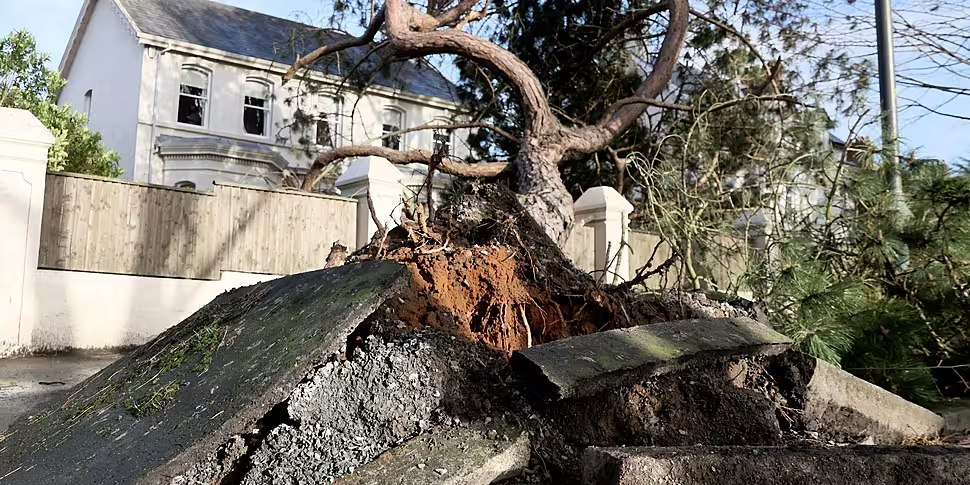15,000 homes, businesses, farms and schools remain without power 12 days after Storm Éowyn.
Hurricane force winds were recorded in Galway and Donegal during the storm with Met Eireann's review of January showing it was the first time such violent winds were recorded in Ireland since 2014.
The data also shows it was colder than normal - with the lowest temperature for January recorded since the late 80s.
Met Éireann Climatologist Paul Moore outlined the data recorded from the recent storm.
“Two stations, Mace Head in Galway and Malin Head in Donegal, recorded hurricane force 12,” he said.
“Four stations recorded violent storm force 11 and eight stations recorded storm force 10.
“It's very uncommon to have such a strong storm [in Ireland].”
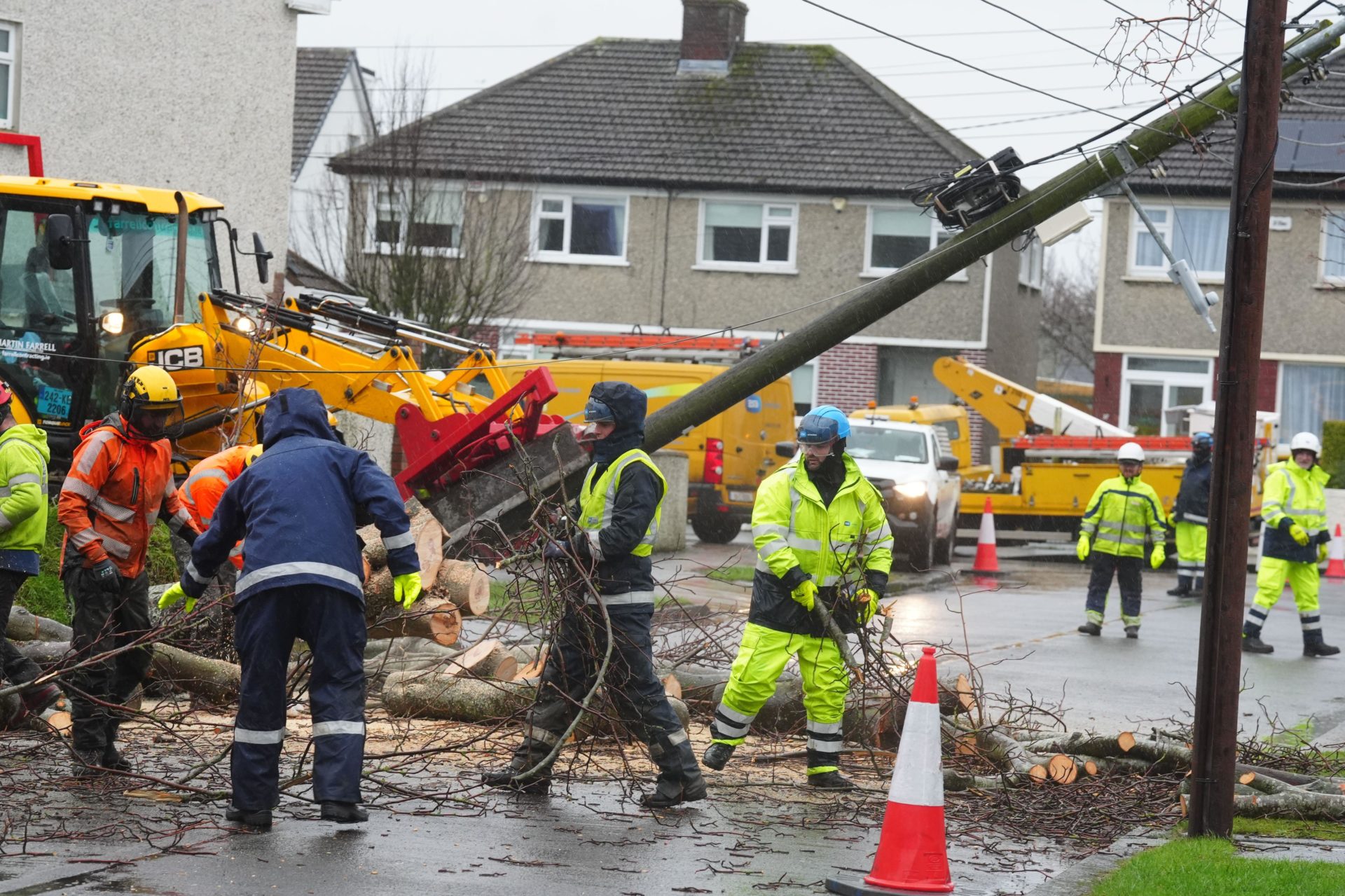 Workers clearing a fallen tree on Grove Park Drive in Dublin. Picture date: Sunday January 26, 2025. Image: PA Images / Alamy
Workers clearing a fallen tree on Grove Park Drive in Dublin. Picture date: Sunday January 26, 2025. Image: PA Images / AlamyToday, the Dáil heard statements about the Government's response to the storm.
There are calls for charges and levies attached to energy bills to be suspended for those most impacted by the storm.
Sinn Fein TD Claire Kerrane represents the area most heavily impacted by power outages - Roscommon - and said the ESB needs to provide relief for customers.
“The PSO levy and the standing charges - they should be suspended for any customer that was without power for whatever length of period that was,” she said.
“Customers again should receive a goodwill payment from the ESB.
“They are in record profit - their last full year of profit in 2023 was €868 million.
“About time now they put their hands in their pockets.”
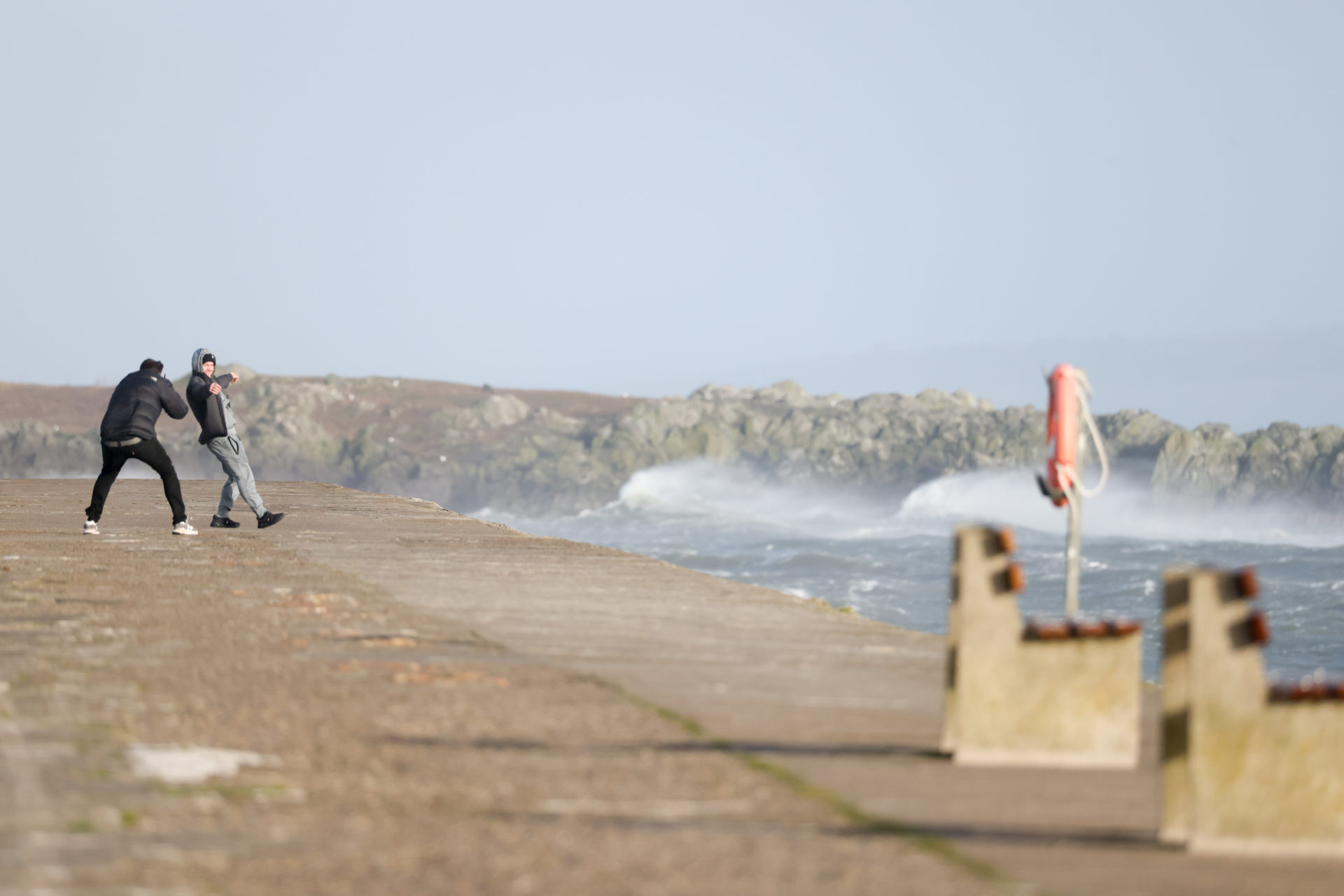 Picture shows a man leaning into the wind for a photograph on the promenade at Howth Pier. 24/01/2025 Photograph: Leon Farrell / © RollingNews.ie
Picture shows a man leaning into the wind for a photograph on the promenade at Howth Pier. 24/01/2025 Photograph: Leon Farrell / © RollingNews.ieThe Environment Minister has announced new measures to enhance the resilience of the electricity grid following Storm Éowyn.
Darragh O'Brien revealed the move in the Dáil this afternoon, following meetings with the ESB and the Commission for Regulation of utilities.
He said among the measures is an 'enhanced resilience plan' to be drafted within the next month.
“It is to be implemented by ESB networks between March and October of this year,” he said.
“This is increasingly important in the wake of a trend that we are now seeing of increasing strengths of storms crossing Ireland, which points to the need for an increased focus on ensuring the resilience of the electricity network to more powerful storms.”
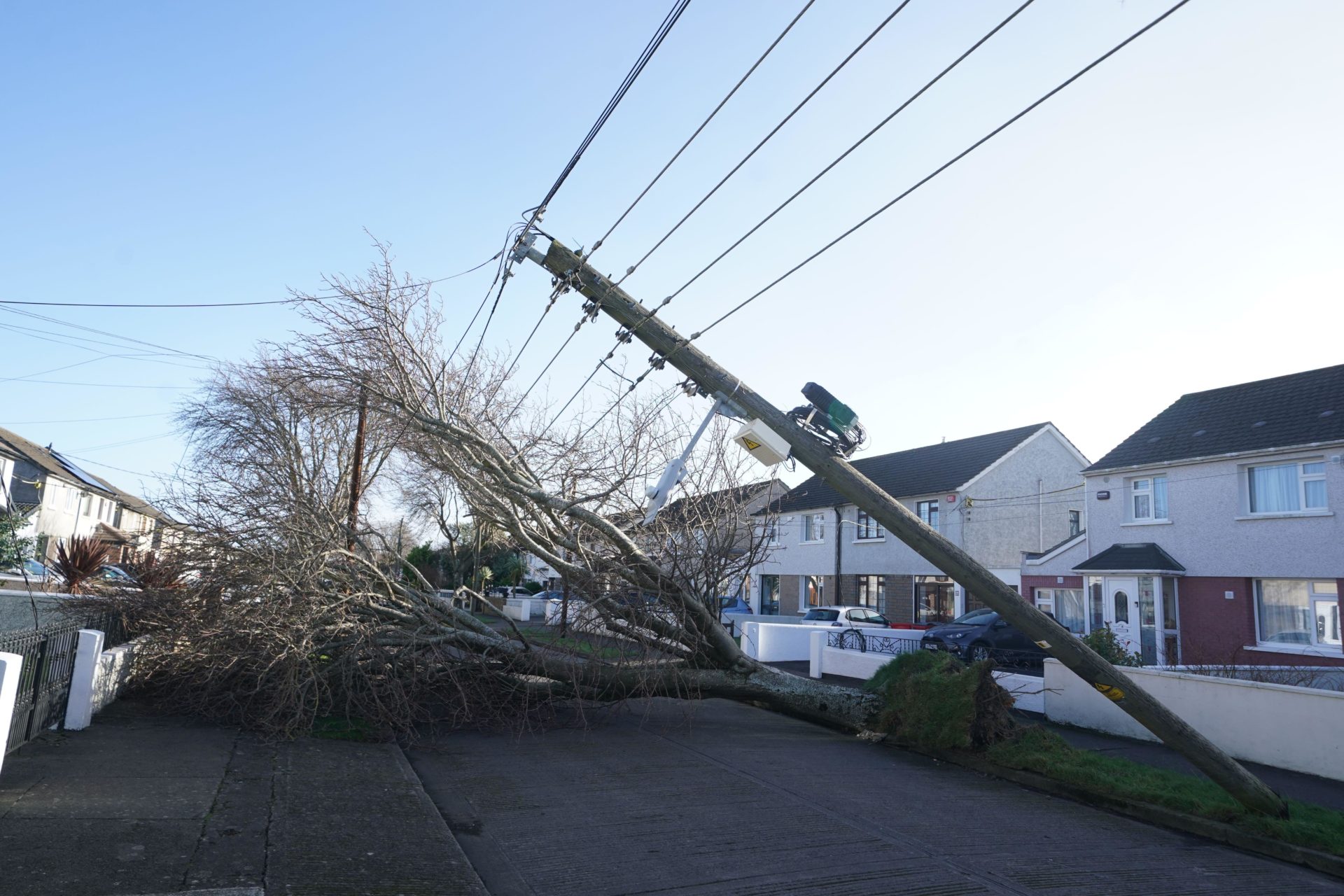 A fallen tree and pole on Grove Park Drive in Dublin. January 24, 2025. Image: Alamy
A fallen tree and pole on Grove Park Drive in Dublin. January 24, 2025. Image: AlamyThe Department for Education is assessing its response to Storm Éowyn and how it supported affected schools.
All schools have now reopened, although some remain without a proper power supply.
Minister for Education Helen McEntee said they will learn from this experience going forward.
“Today, now, every school is open, every school that yet does not have power has a generator, and those that were structurally impacted… they've been supported to re-accommodate their students so that every school can open,” she said.
“I've asked my department to look at our response, how we can improve it, how we can work with schools more quickly, how we can get a greater picture, much more quickly, of the schools that are impacted and those that need help.”
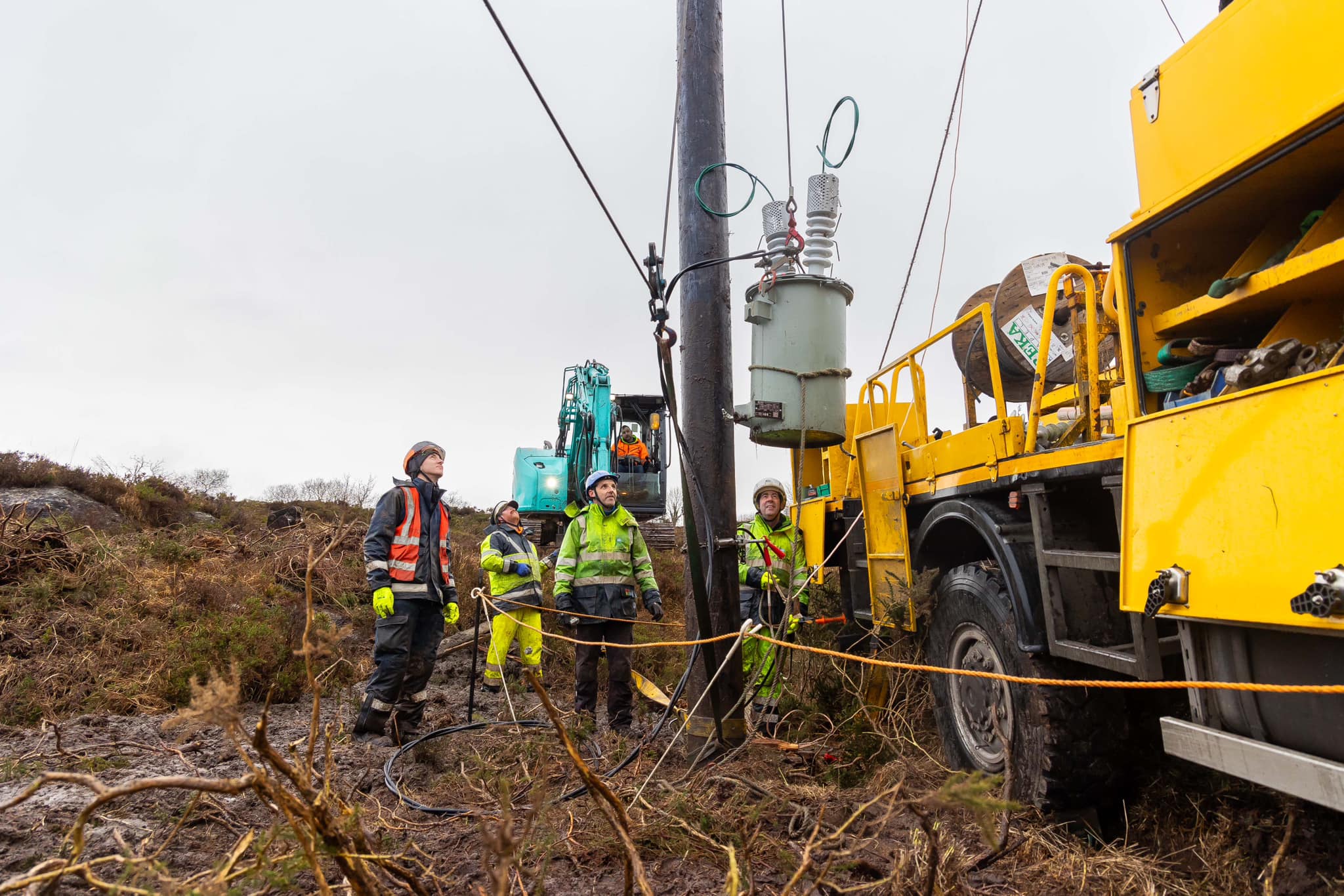 ESB Networks crews and partner contractors pictured on site near Dunmanway in West Cork. 25/01/2025 Picture: Michael O'Sullivan /OSM
ESB Networks crews and partner contractors pictured on site near Dunmanway in West Cork. 25/01/2025 Picture: Michael O'Sullivan /OSMAhead of the statements, there was opposition criticism of the Government's response to the storm.
Labour leader Ivana Bacik said the Government needs to provide further support.
“I've heard from families who were tragically forced to wake their dead relatives by candlelight,” she said.
“From parents unable to cook a hot meal for their bored and cold young children.
“From older people left terrified and isolated by power outages and fallen trees.
“From people with chronic health conditions whose appointments were cancelled or they couldn't access them.”
Some households in the worst affected parts of the country, who were due to have power reconnected early this week, have received notifications from the ESB pushing their reconnection date back to Sunday, February 9th.
This will make approximately 17 days of no power for some ESB customers.
A fallen tree breaks up the pavement during storm Eowyn in Belfast, Northern Ireland, Friday, Jan. 24, 2025. Image: Alamy


